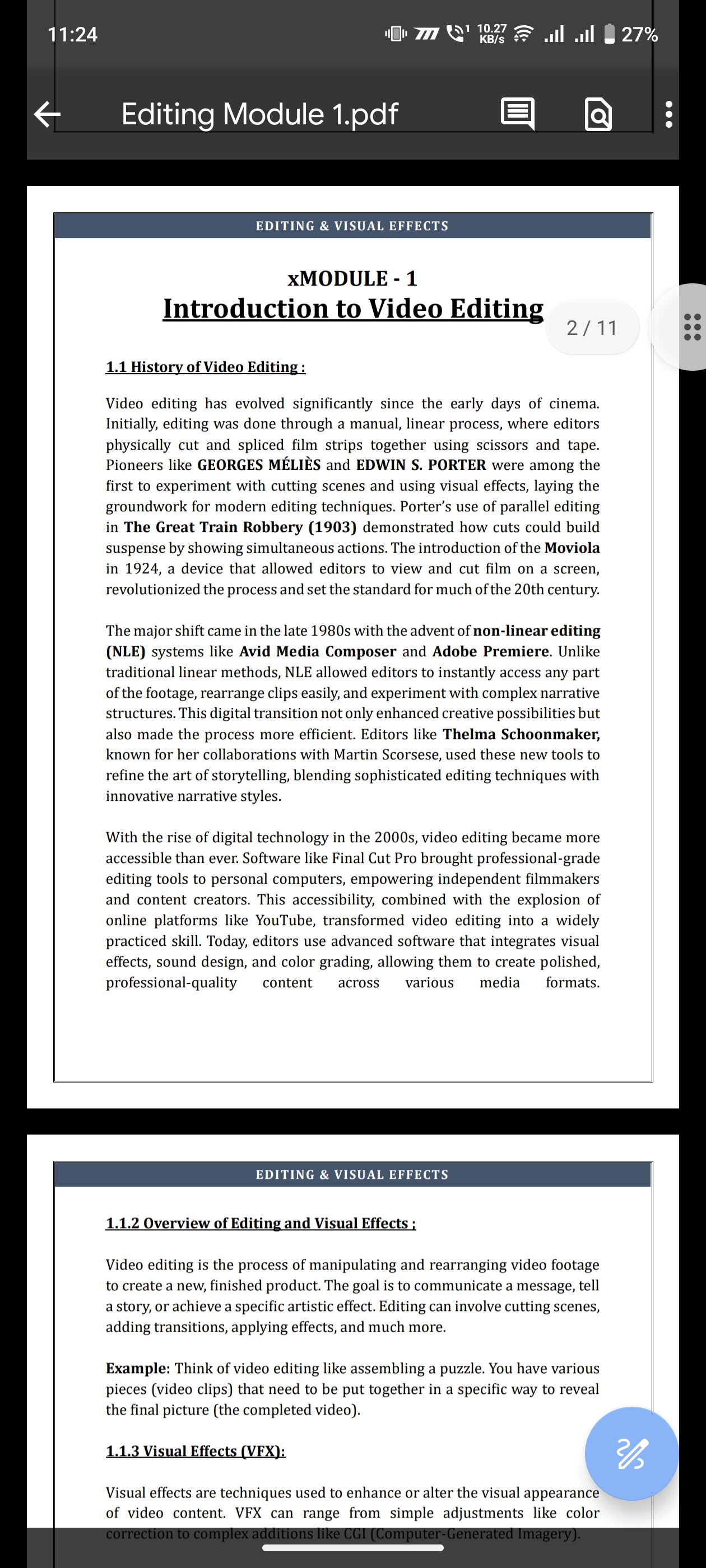What is the history of video editing, and how have visual effects evolved in film production?

Understand the Problem
The question is related to the history and techniques of video editing and visual effects, exploring their evolution and significance within the film industry.
Answer
Video editing evolved from manual splicing to digital tools; visual effects progressed from early techniques to advanced CGI.
Video editing began with manual cutting and splicing in the early 1900s, evolving through the introduction of non-linear editing systems in the 1980s and digital tools in the 2000s. Visual effects started in the late 19th century with pioneers like Georges Méliès and advanced with CGI and digital techniques.
Answer for screen readers
Video editing began with manual cutting and splicing in the early 1900s, evolving through the introduction of non-linear editing systems in the 1980s and digital tools in the 2000s. Visual effects started in the late 19th century with pioneers like Georges Méliès and advanced with CGI and digital techniques.
More Information
The transition from manual to digital editing has revolutionized filmmaking, allowing for more complex narratives and streamlined production processes. Visual effects have similarly transformed film, enabling the creation of sophisticated and realistic imagery.
Tips
A common mistake is overlooking the significance of non-linear editing systems and how they revolutionized the industry.
Sources
- The Evolution Of Video Editing - Film Editing History - MASV - massive.io
- The Use of Special Effects in Video Production - BLARE Media - blaremedia.net
- The History of Visual Effects in Film and Television - VFX Cookbook - vfxcookbook.com
AI-generated content may contain errors. Please verify critical information